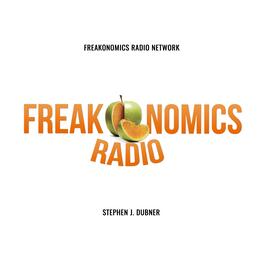
Incarcerated people grow crops, fight wildfires, and manufacture everything from prescription glasses to highway signs — often for pennies an hour. Zachary Crockett takes the next exit, in this special episode of The Economics of Everyday Things. SOURCES:Laura Appleman, professor of law at Willamette University.Christopher Barnes, inmate at the Franklin Correctional Center.Lee Blackman, general manager at Correction Enterprises.Gene Hawkins, senior principal engineer at Kittelson and professor emeritus of civil engineering at Texas A&M University.Renee Roach, state signing and delineation engineer for the North Carolina Department of Transportation.Brian Scott, ex-inmate, former worker at the Correction Enterprises printing plant.Louis Southall, warden of Franklin Correctional Center. RESOURCES:“Manual on Uniform Traffic Control Devices for Streets and Highways, 11th Edition,” by the U.S. Department of Transportation Federal Highway Administration (2023).“Prisoners in the U.S. Are Part of a Hidden Workforce Linked to Hundreds of Popular Food Brands,” by Robin McDowell and Margie Mason (AP News, 2024).“Ex-Prisoners Face Headwinds as Job Seekers, Even as Openings Abound,” by Talmon Joseph Smith (The New York Times, 2023).“Bloody Lucre: Carceral Labor and Prison Profit,” by Laura Appleman (Wisconsin Law Review, 2022).“The Road to Clarity,” by Joshua Yaffa (The New York Times Magazine, 2007).Correction Enterprises. EXTRAS:“Do People Pay Attention to Signs?” by No Stupid Questions (2022).The Economics of Everyday Things.
From "Freakonomics Radio"


Comments
Add comment Feedback